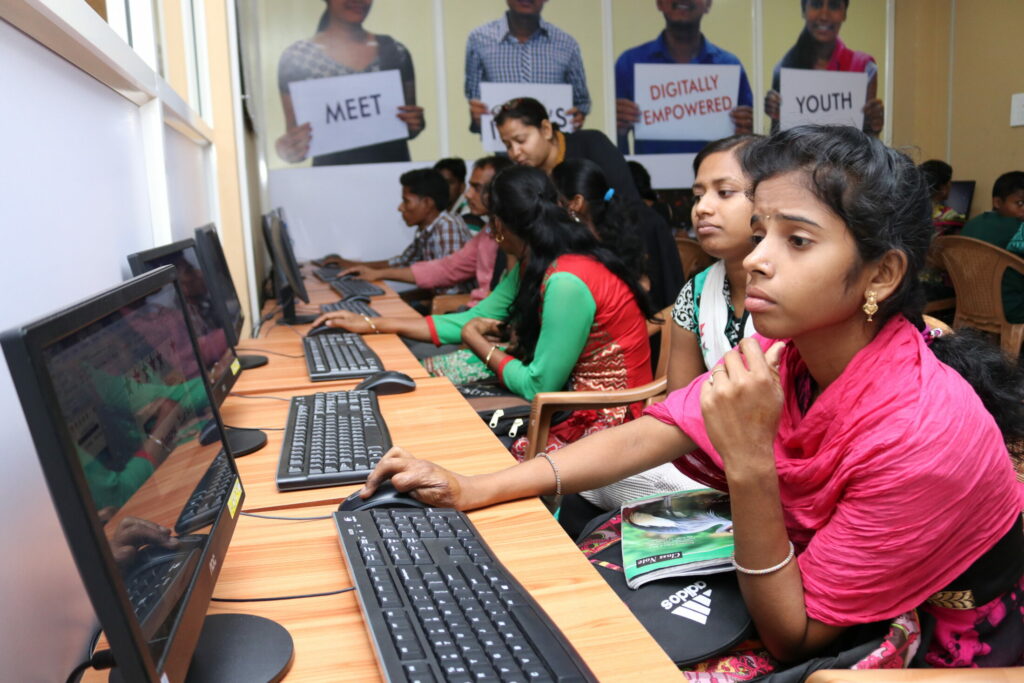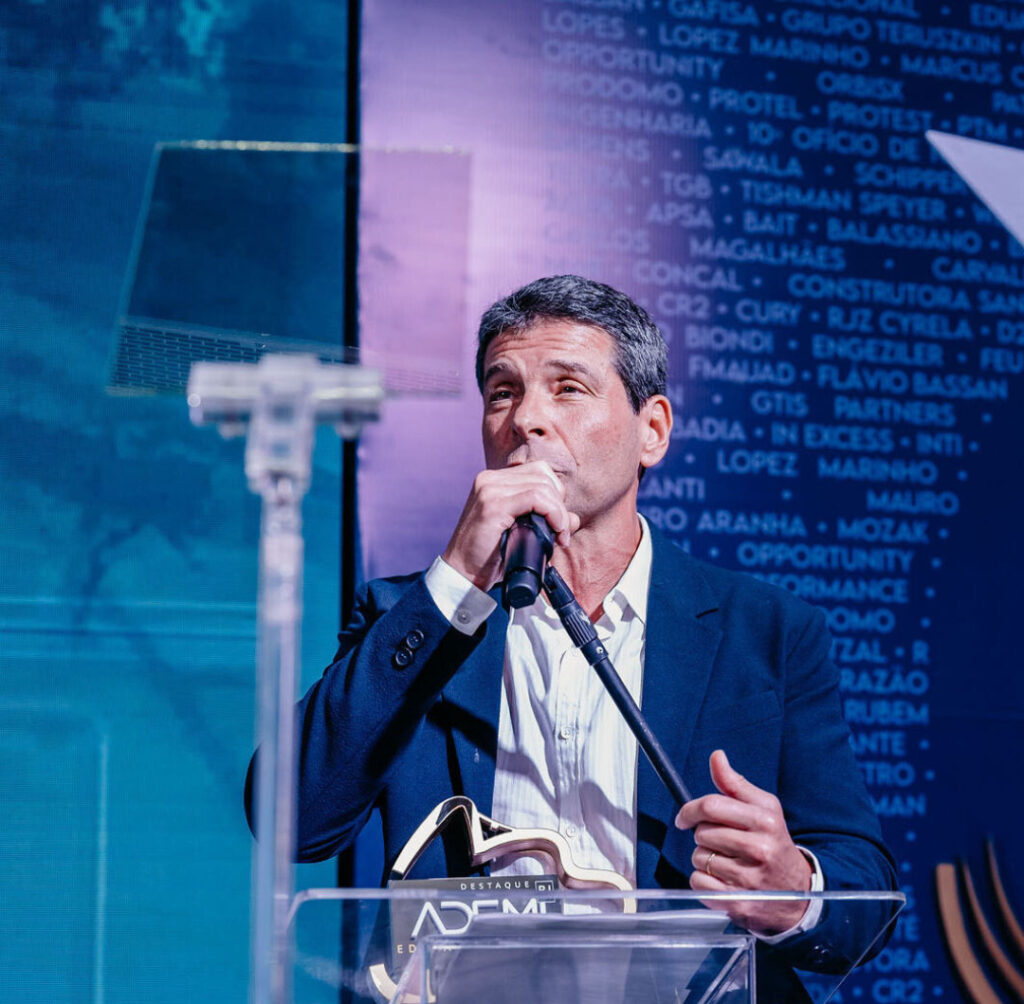From the benefits of digitization in the humanitarian sector to the signature of the UN Compact for Migration, DRC’s Secretary General does not forget the broken shadows wandering through the deserts of Libya and Algeria, abandoned to violence, abuse, and crime. Christian Friis Bach has a lot to say and reflect upon.
by Jean-Christophe Nothias | Editor
Jean-Christophe NOTHIAS (JCN): Looking back at the early days of DRC, it was set as a temporary umbrella of organizations. They came together following a request from the Danish Ministry of Foreign Affairs in order to help a thousand Hungarian refugees fleeing their country after the 1956 events. During the following decades DRC became responsible for welcoming refugees into Danish society. With the explosion of Yugoslavia, DRC started to act internationally and has grown steadily from there. It is today #3 in the Top 500 NGOs list. Do you see another ‘big bang’ coming your way that would transform DRC beyond its current set of operations?
Christian Friis Bach, Danish Refugee Council’s Secretary General: The overall trend where we see a rise in the number of displaced globally while at the same time an absence of solutions means that actors such as DRC are as relevant as ever. I don’t necessarily see a big change for DRC, but there are definitely new winds blowing in the humanitarian system that could call for changes. Very briefly it can be summed up by saying, that we cannot save the world by continuing to do what we do today.
It is no secret that the humanitarian system today faces an unprecedented financing gap where means available are increasingly unable to match the growth rate of funding requirements. Additionally, we keep focusing on efficiency and effectiveness to reduce transaction and other costs and ensure that as much of the funding reaches people in need. This links to the Grand Bargain process and commitments.
This brings me to an area where I think, we’ll see a large shift in the future – and that is when it comes to digitalization in the humanitarian sector. In the Danish Refugee Council, we took a big leap forward and are becoming one of the largest and most complex organization to integrate a fully cloud-based business system. This will greatly strengthen our ability to ensure that food will be sent on a timely basis to Yemen, carpets can be distributed faster and more efficiently to freezing children in Syria, and sand bags will arrive earlier to counter the monsoon in Bangladesh. Digitization will save lives and will make a difference to people in need.
But the benefits go beyond the direct implementation and delivery of aid. We need to be smarter and do more with the same money and make all processes more efficient. Each year, we receive around 4,000 grants, and must account for each project. This will also be made easier by this system.
Finally, it can help us increase our transparency and openness. Once we’ve fully implemented the system, our goal is to greatly expand the access to financial data on our website updated daily. This will allow donors, the public and importantly persons of concern to follow the money and where aid is being delivered.
This also applies when it comes to data protection. Digitization will help us ensure that data are better protected. I’ve seen many companies stating that they are implementing data protection because of the new EU GDPR-regulation. That is obviously one reason, but I can say that we are also doing this because we believe in protection. Also, when it comes to data. We work with some of the most marginalized and vulnerable people in the world. They have a right to be protected – and so has their data.
When talking about protection of persons of concern and digitization, another important feature that I would like to mention is what, we call Open DRC which is a new transparency initiative. With Open DRC we signal that we walk the talk of our core values, transparency and honesty. Open DRC entails among other things our Internal Audit Annual Report, our Grants Database Dashboard, our Code of Conduct annual report, and a monthly updated dashboard of the code of conduct reporting mechanism featuring the number and type of complaints. The dashboard shows for a start a portion of the data which is made available through our Code of Conduct Annual Report. It will be further expanded in the coming months but is already going beyond what most other organizations provide. This means that people now have access to an overview of our reported code of conduct cases. This is to signal and show that we believe in honesty and transparency – and because we believe that transparency will strengthen our ability to prevent and address issues of fraud or sexual misconduct, protect people of concern and because it will strengthen our dialogue with stakeholders.
JCN: With DRC evolving so does the nonprofit sector. By sector, we consider not just the ‘humanitarian’ or ‘development’ parts but more broadly speaking the “Social Profit Oriented” industry. Do you feel that this sectoral evolution mirrors within or echoes around DRC as well? And how do you see that ‘for social profit’ revolution affecting societies both economically and socially?
Christian Friis Bach: I think the classic response actors are seen as insufficient to deal with large-scale displacement. The traditional UN-response is challenged, and the traditional humanitarian response architecture is not functioning good enough. Displacement is no longer isolated to the humanitarian sphere, but a broader security and development challenge. This demands new partnerships and different types of actors partnering up to work for durable solutions to displacement. As funding for humanitarian assistance is not enough to promote sustainable durable solutions for displacement the sector has called for more engagement of non-traditional stakeholders and that all actors need to work together and align to the same overall goals. Especially the collaboration with the private sector is taking up importance and can impact the way we do humanitarian assistance substantially. Our cooperation with a company like Grundfos to replace water trucking with proper water solutions with boreholes, solar energy and digital distribution points is a good example.
Present day conflicts are often long lasting and protracted refugee situations are, therefore, now lasting around 26 years on average. This conflict pattern calls for actors to consider if humanitarian and development assistance offered today is well suited to support agency among displacement affected populations, meeting needs and rights violations, and factoring in longer perspective resource constraints.
Short term funding cycles continue to be the default financing way for humanitarian assistance. This inherently favors assistance models able to document short-term results. The need for more flexible and predictable funding is well documented where such a shift to an investments mindset will require new ways of assessing humanitarian impact and returns/value for money on investments.
Giving that DRC is a displacement organization, we’ve always worked both in the humanitarian and development field. But the current “nexus”-debate and the Global Compact on Refugees has the potential to fundamentally change future displacement response. The international consensus achieved at the World Humanitarian Summit on the need to bridge the humanitarian-development divide as a necessity for moving from addressing need to ending need is taking effect. The Grand Bargain, the New Ways of Working, the Global Compact on Refugees and the Comprehensive Refugee Response Framework, the wider UN reform and the World Bank’s intensified engagement in displacement all evidence the current momentum for developing comprehensive, solutions-oriented and multi-stakeholder responses to displacement.
JCN: What are the most immediate challenges of the moment for you as Secretary General of DRC?
Christian Friis Bach: The number of forcibly displaced – refugees as well as internally displaced people – continues to increase. In addition, the average duration in displacement is increasing due to lack of global responsibility sharing and political solutions. This worries me deeply. When talking about concrete examples a couple of situations comes to mind.
I think Yemen is one of the worst places on the earth at the moment. The sheer numbers speak for themselves. 12 million people across Yemen are at imminent risk of descending into famine. Over 22 million persons are in need of some kind of humanitarian assistance. What we see in Yemen is actually on the brink of what we could call a man-made famine. Man-made in that sense that it is the policies of countries and decision makers that brings the population to starve. Even though humanitarian organisations such as the Danish Refugee Council do everything we can to assist as many as possible and alleviate the sufferings, it’s simply not enough. It is one of the few places in the world where we deliver emergency assistance while active bombings are taking place. At the same time, it is very difficult to get aid into the country. But humanitarian aid in itself (however important) is not the answer. We need to have a political solution to end this horrible situation. And we need to have it now.
Another thing that worries me and is the lack of protection of people on the move. When it comes to irregular migration, we see countries are more focused on protecting borders instead of protecting people. Countries are protecting borders no matter the human costs – and these costs are high. It leaves people stranded at the borders and exposed to severe abuses and human rights sufferings. Therefore, I say, we do not have a migration crisis, we have a protection crisis.
The Danish Refugee Council has in 2018 established the Mixed Migration Centre providing evidence and analysis of the mixed migration issue. They’ve just released their Mixed Migration Review, 2018 including data from the 4Mi, which is a unique project where we have monitors along migration routes that interview refugees and migrants in Africa, Asia and Europe. We now have 22,000 in-depth interviews and collects 1,000 interviews per month
It brings evidence to the massive human rights violations suffered by people in mixed migration situations: nearly 60% of migrants on the route Horn of Africa to North Africa/Europe report having experienced sexual or physical violence, robbery or kidnapping. 1 in 4 report seeing deaths of other migrants. We need to remember that behind this are human beings. One of them is a woman from Cameroon. She was pregnant when she decided to try and reach Europe with her 4-year old child and her 11-year old brother to be reunited with her husband in Germany. In the desert of Algeria, she was brutally raped in front of other migrants, her child and brother. Then she and her family were abandoned in the desert for four days before they were found by border police. When our monitors met her, she was in distress with no safe shelter, no access to health, no money, no justice – not knowing whether to try again or return to Cameroon.
Right now, we fail to protect people as this woman.
JCN: There are a few regulations in terms of tax exemption within the EU: One citizen from a European member country can donate to an organization fiscally headquartered in another member country. Is this something that is part of your practice when it comes to fundraising from European donors?
Christian Friis Bach: It is part of our fundraising strategy to start more private sector fundraising in other European countries in 2019 – and thus this is something we pay attention to and are aware of. However, at the moment, we primarily do private sector fundraising in Denmark, so I don’t have much more inputs as of now.
JCN: We’ve seen organization such as Handicap International creating a Head-of-Innovation position at executive level (VP). Do you think this is a position DRC would be interested to create? When and why did DRC created the Head of Business Engagement position?
Christian Friis Bach: The Business Engagement Initiative (BEI) was established in 2016. Partnerships are key to leverage today’s technology and expert knowledge for a better protective response to people in need. DRC partners with actors from all three dimensions of society (State, civil society, private sector), and at local-, national-, and international levels, but will have different reasons for engaging at the different levels. The world is increasingly becoming interconnected and interdependent, and partnerships are therefore higher on the agenda than ever before. The Sustainable Development Goals (SDGs) emphasize the necessity of partnership, in particular SDG 17 with its bold statement that the SDGs “…can only be realized with a strong commitment to global partnership and cooperation.”. Such partnerships need to create value. For the Danish Refugee Council and for the displaced. But also, for the business partners. For many years, businesses have donated money to humanitarian organizations. But this is not enough. Would cooperation be sustainable everyone will benefit it. We need to go beyond corporate social responsibility. From value transfer to value creation.
The private sector is key to creating jobs and is often driving technical and societal developments. The main purpose of working in partnerships with the private sector is to get access to technical or systemic knowledge for innovative, sustainable solutions, and to create access to financial services and jobs in the private sector for people affected by displacement. And in many ways our business engagement initiative is also an innovation initiative.
I can give you one example on our innovative way of working. We’ve partnered up with IBM on making predictive modelling for future migration patterns. By using of Artificial Intelligence and machine learning IBM can analyze substantial amounts of data – and use it to strengthen our ability to predict migration and refugee movements in the future. Together, we are developing a comprehensive, data-backed analytical and predictive model.
In our unique cooperation with IBM, the first results on Ethiopia show how investing in the SDGs is the best pathway to preventing dangerous migration flows. If Ethiopia instead of being in the bottom five in Sub-Saharan Africa when it comes to health services moved to be in the top five, then migration towards Europe would drop by 9%. If on the other hand employment opportunities in Ethiopia should drop from being in the top five in Sub-Saharan Africa to the bottom 20 % then 25% more Ethiopians would leave for South Africa. Here we can demonstrate what is needed to prevent people from feeling forced to embark on these dangerous journeys. At the core of our response should be the Sustainable Development Goals. These are just the first results from this large scale partnership, but it shows how we can create value by working together.
JCN: What will be your next destination on behalf of DRC? What challenge will you face when visiting that location?
Christian Friis Bach: I’ll be going to Marrakesh, where the UN Compact for Migration is to be signed, December 10-11. The compact on migration is a crucial test on whether the world still believes on dialogue and international cooperation to solve key challenges. Still more countries fail to do so – and that is probably the challenge, we’ll face there. And as mentioned previously, we hence right now fail to protect people on the move. Hopefully the Compact can increase protection for these people. And hopefully it’ll lead to less irregular migration.
Our Mixed Migration Review 2018 also showcases how the political responses to seal borders have exacerbated protection risks and created a lucrative smuggling industry surpassing drugs in revenue potential. At the same time, the report also encourages us to be attentive to proportions. The amount of people travelling via irregular routes towards Europe and other Western countries is minuscule compared to the regular migration happening. So, when we look to the future, it is essential that we manage to change the current narrative around migration. Migration is not a problem. Irregularity is a problem. Access to protection is a problem – for both refugees and migrants.
The only way we can create solutions on global issues is by working together globally. This is why the Global Compact for Refugees is so critical. It also demonstrates that many governments still believe in transnational solutions to global challenges in a context where more countries are tempted to go back to using national ill-fated expedients to these challenges.
We must remember that we created the UN system during Second World War and its aftermath. We need to remember that the threat against our democracies and societies doesn’t come from refugees and migrants. The threat does not come from global cooperation and transnational Conventions. The threat comes from the increasingly strong political forces that undermine the very foundation upon which we have created our democracies: Dignity and Human Rights.


